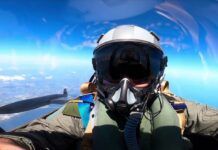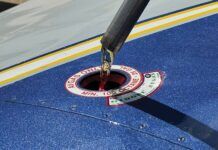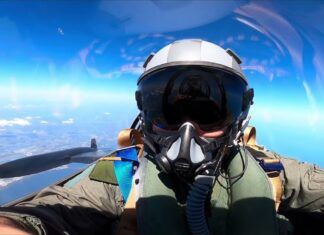When I was editing the ATC tapes for yesterday’s podcast on the USAir Flight 1549 ditching, two things occurred to me: One, I really miss New York controllers and, two, would anyone in the mainstream media notice how seamlessly the New York TRACON controller handled the emergency, even if his actions didn’t really impact the outcome?Someone did notice. On Thursday evening’s World News, ABC’s Charlie Gibson commented to John Nance about how calm and collected everyone sounded on the frequency. (As if he expected blood curdling shrieks and uncontrolled sobbing.) In aviation, we’ve come to expect this level of professionalism because that’s the accepted standard of performance. We like to think that enforced calm in the cockpit is an attempt to stave off panic so we can think clearly. Secretly, I think when a pilot finds himself in extremis, there’s a little switch in the brain connected to the PTT that says, “Oh, geez, I gotta make this sound good on the tape.” That way, when they find our soiled underwear in the wreckage, they’ll at least say, “well, at least he sounded like a steely-eyed missile man.”The point Gibson missed for lack of aviation knowledge and because ABC imagines the audience to be too unsophisticated to understand, is how skillful the TRACON was in coordinating between three facilities, the departure radar position, LaGuardia tower and Teterboro tower. Then the controller had the good sense to stay off the frequency while the crew worked out its options.From the time of 1549’s first call, the controller told LaGuardia tower to stop departures within 15 seconds. It took the TRACON controller and the Teterboro tower controller another 15 seconds to make runway 1 at TEB available for an emergency landing. The TEB local said “…runway 1, that’s good.” A done deal, the whole thing in under two minutes.The rest was just waiting on the crew to follow through. It’s tempting to once again lionize the people involved in this accident, this time the controllers. But the truth is, they do this sort of thing every day. What’s exceptional about it is that it’s not exceptional.I spent much of my flying career in New York airspace talking to New York TRACON. My own pucker moment occurred about 20 years ago when I was flying a Navajo from Atlantic City to Hartford one snowy night. Just past JFK, a turbocharger hose blew off the right engine, causing a partial power loss. While I was wading Da Nile trying to figure out which engine had tanked, the controller shooed a couple of Kennedy arrivals out the way and coordinated a clearance to land on any runway at Farmingdale. He was ahead of me; he understood enough from “engine problem” to start putting a plan in place.If all that took 20 seconds from my initial radio call, I’d be surprised. Listening to the tapes yesterday, it’s obvious and encouraging that nothing has changed.Given the dreary daily reports of malfeasance, misconduct and downright incompetence, isn’t it nice to see a professional doing the job he’s trained to do? It’s something we all expect, but lately, we haven’t seen much of.
WORLD'S PREMIER INDEPENDENT AVIATION NEWS RESOURCE
- Aviation News
- Recent Updates
- Blog
- Multimedia
- Features
- AllAdventure FlyingAVWeb ClassicsCEO of the CockpitEye of ExperienceFrom The CFILeading EdgeMemoirPelican’s PerchProfilesSay Again?The Pilot’s LoungeBrainteasersCareersCommentaryCompany ProfileFlying Media OffersFun FlyingQuestion of the WeekReader MailShort FinalThis Month In Aviation Consumer MagazineThis Month In IFR Magazine
- Shows & Events
- Flight Safety
- Ownership
- Avionics
- Advertise
© 2024 Firecrown. All rights reserved.

































